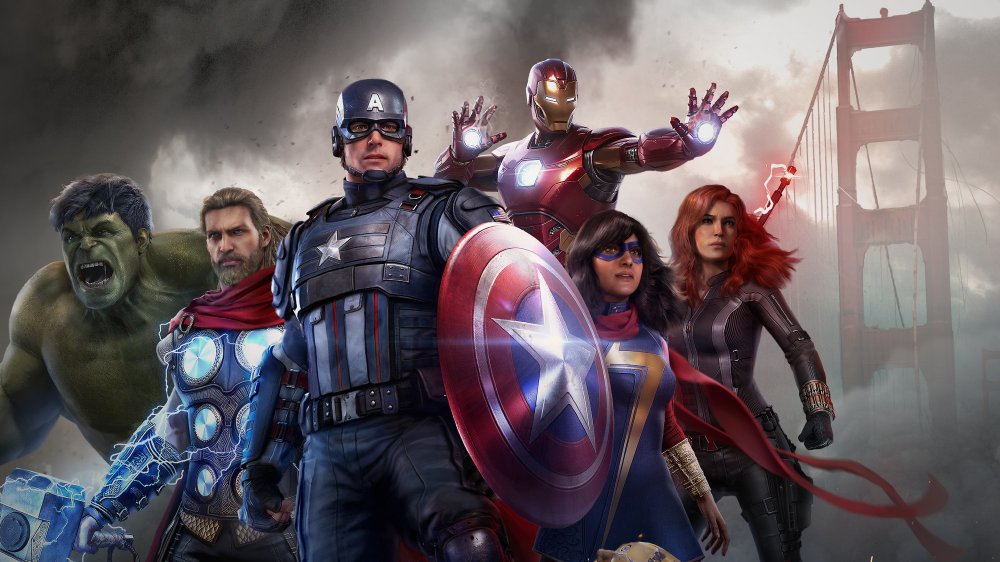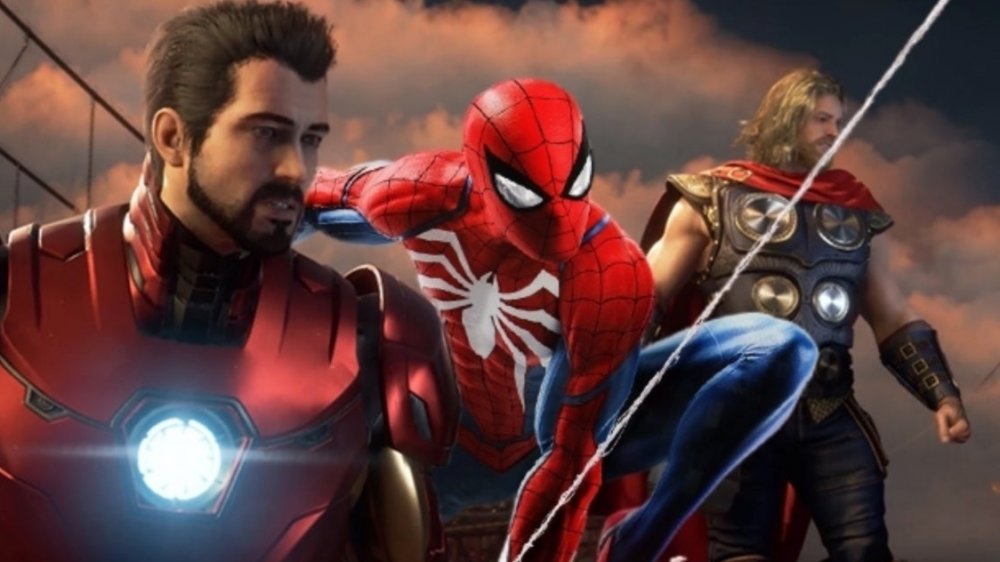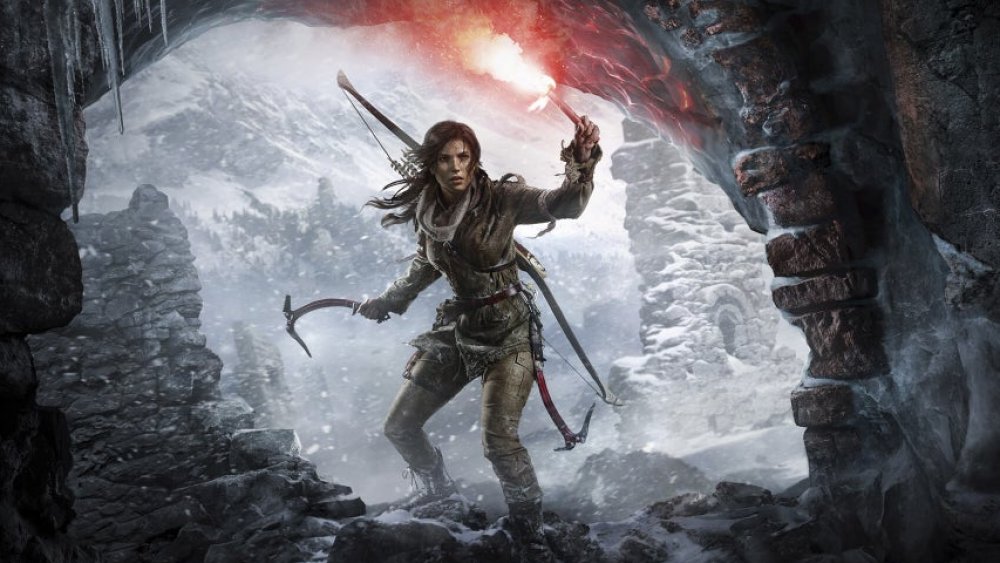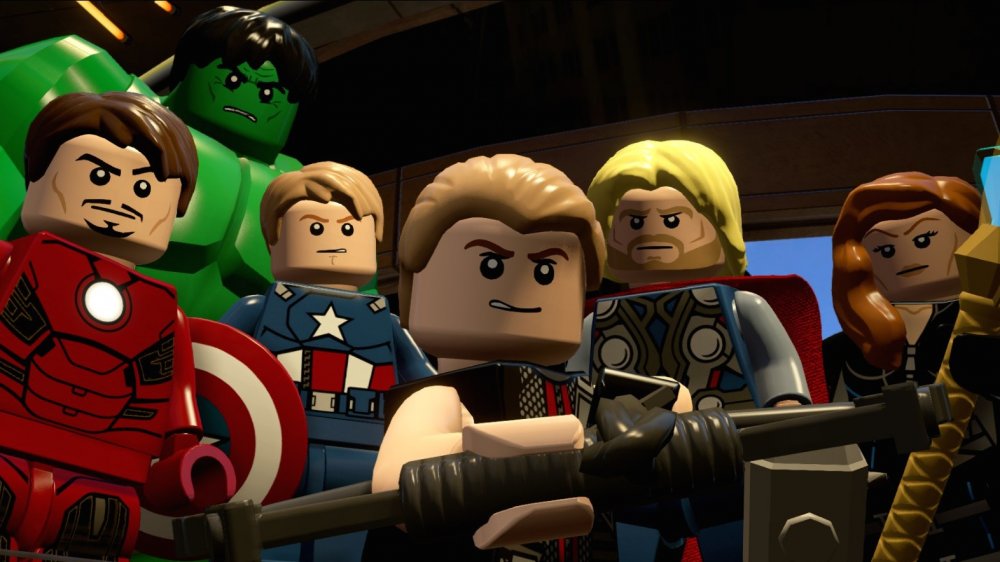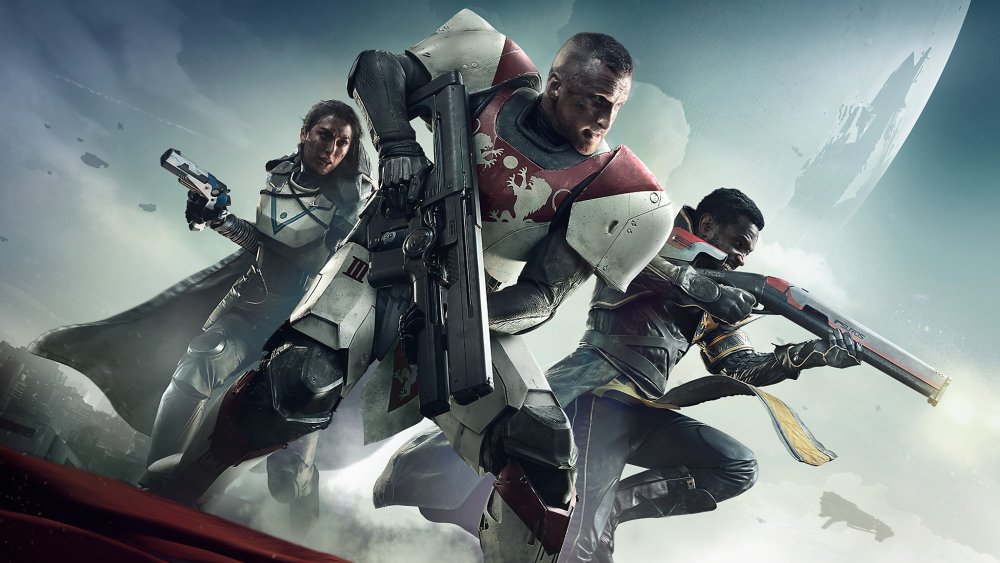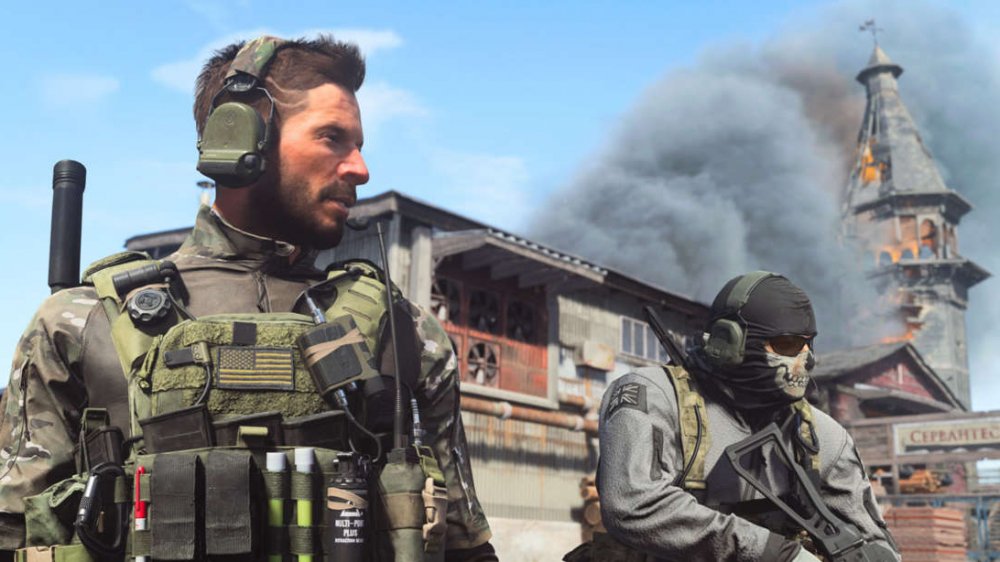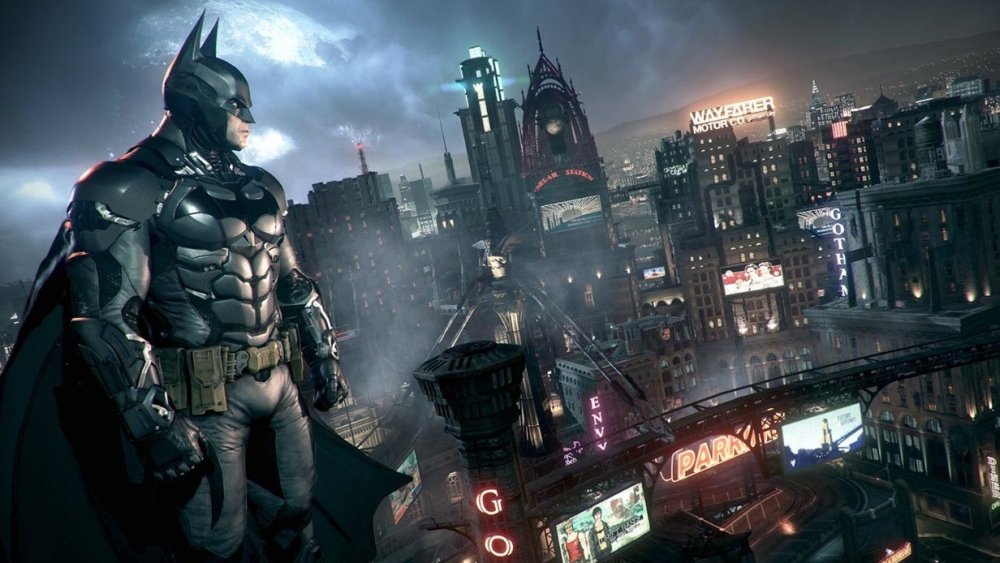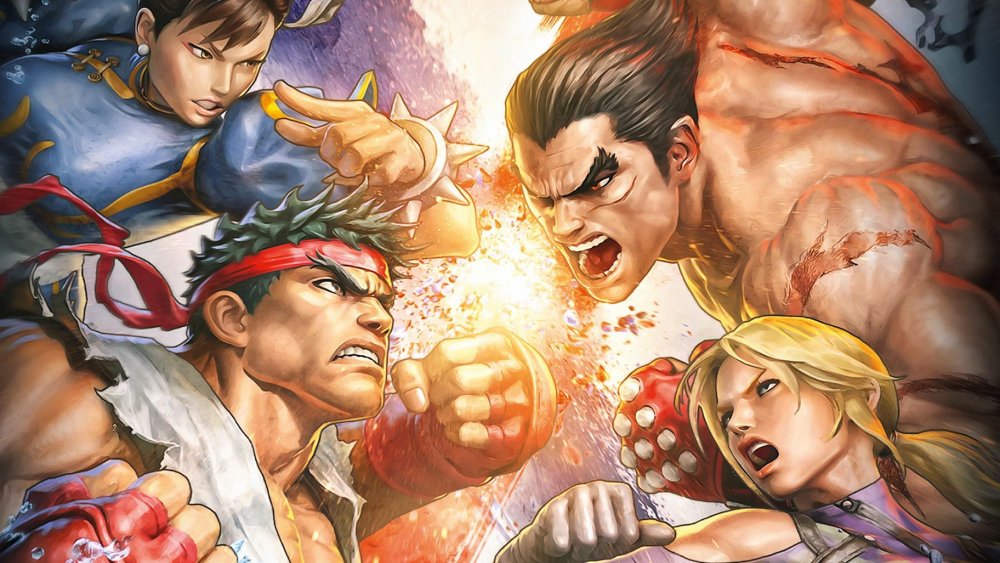Console Exclusive Content That Seriously Upset Fans
Console exclusivity has been a part of the video game world for a long time now. Console manufacturers such as Sony, Microsoft and Nintendo have built first-party franchises for the systems they've released, and creations like Uncharted, Halo, and Super Mario Bros. have ultimately sold PlayStations, Xboxes, and Nintendo consoles as a result. Most gamers understand this.
The issue becomes a bit muddier with third-party developers, however, who usually make their games available to the widest audience possible across multiple platforms. Every once in a while, a third-party title will launch with some exclusive content tied to one system. And just like that, gamers on other platforms find themselves paying the same amount of money but getting less content in return.
While many developers have learned to avoid the controversy that comes along with platform exclusive content deals, it still happens more often than you might think. Here is the console exclusive content that seriously upset fans.
Spider-Man in Marvel's Avengers
Marvel's Avengers gives gamers an opportunity to play as many of their favorite Marvel superheroes in one place. The universe's most popular characters, including Iron Man, Captain America and Thor appear front and center, and additional heroes like Hawkeye were slated to join the roster in the form of DLC. Unfortunately, as the title neared release, some gamers received some pretty bad news about the platform exclusivity of one particular character.
Spider-Man's appearance in Marvel's Avengers became one of the biggest flashpoints of console exclusive backlash. In the lead-up to the launch of the game, Crystal Dynamics announced that the character would appear only on PlayStation. Fans accused both Crystal Dynamics and Sony of anti-consumer tactics, outraged at the idea of paying the same price for what they saw as a lesser experience. Some fans went so far as to suggest a boycott of the title upon its release.
Crystal Dynamics head Scot Amos defended the decision, however, by referencing the "special relationship" that exists between Sony and the Spider-Man license. Sony owns the film rights to the Spider-Man character. Not only that, Marvel's Spider-Man was PlayStation 4 exclusive. While this did serve as an explanation of sorts, it did little to quell the negative reaction to the news.
Rise of the Tomb Raider's timed exclusivity on Xbox One
Crystal Dynamics is a studio that now has a track record when it comes to console exclusivity, but it wasn't always this way. Until 2015, the studio was mostly known for developing well received games in the Tomb Raider franchise. In fact, the studio had rebooted the series twice and started a spin off series, all to critical acclaim.
However, a lot of that goodwill was spent when the developer announced Rise of the Tomb Raider was an Xbox exclusive. Rise of the Tomb Raider was a direct sequel to the 2013 Tomb Raider reboot released simultaneously on Xbox One, PlayStation 4 and PC.
The announcement that the exclusivity was only temporary did little to calm fans. A petition to try and force the release of the game on all three platforms with the threat of a boycott if fan demands were not met had over 3,000 signatures. While the game was finally made available for all platforms in time for the 2016 holidays, the controversy stained the legacy of this otherwise praised sequel.
Lego Marvel's Avengers's exclusive PlayStation DLC
The long running, kid-friendly Lego series is known for unoffensive, fan pleasing interpretations of some of the most popular licenses in recent history. However, in 2016 the Lego franchise took on the superhero world with Lego Marvel's Avengers, and caused a backlash when it was revealed that some versions of the game would feature locked content.
The issue was over exclusive DLC provided for PlayStation owners. These additions featured new levels based on the then brand new Ant-Man and the upcoming Captain America: Civil War films. Fans as well as parents of disappointed children who were unable to play as their favorite superheroes expressed their dissatisfaction.
Making matters even worse, in the eyes of one Redditor, was the fact that the exclusive content was deceptively advertised as being timed. If this was the case, the content would have been made available to all consoles after a period. Unfortunately, this did not happen. To this day, the Ant-Man and Captain America: Civil War content is only playable on PlayStation consoles.
Destiny's timed exclusives on PlayStation
As the developer of the original Halo games, Bungie has a long, successful history with Microsoft and Xbox gamers. While this has given the company a special relationship with both, it didn't stop the company from offering PlayStation gamers exclusive content in both Destiny and Destiny 2.
By the time Destiny: The Taken King hit shelves, PlayStation players had received exclusive armor sets, multiplayer maps and two strikes not available to other players. This arrangement was infuriating to fans of the game because it split the Destiny community and actually affected how certain activities could be presented.
The backlash from those choices did not dissuade Bungie from continuing to offer PlayStation-exclusive content in Destiny 2, as well. The second year of the game saw the Destiny 2: Forsaken expansion, which delivered an exclusive weapon, ship, strike and armor set to those on PlayStation 4.
These problems have since been rectified, as Bungie is no longer partnered with Activision and no longer has an exclusive content deal with PlayStation. For the moment, at least, all new content is hitting all platforms simultaneously.
Call of Duty: Modern Warfare's exclusive PlayStation 4 mode
The Call of Duty franchise has been giving exclusive content to PlayStation owners for years. These have been short timed early access to features that would be made available to all platforms on launch. For example, PlayStation gamers received a 30 day head start on the Modern Warfare Remastered campaign that accompanied Call of Duty: Infinite Warfare.
However, recently Sony has been more aggressive in securing post launch exclusive features and game modes . The first instance occurred with Call of Duty: Black Ops, when Activision announced that all new content arriving for the game would be available only on PlayStation for seven days. After those seven days were up, it would be made available to everyone who had purchased the game, regardless of platform.
However, when Call of Duty: Modern Warfare dropped in 2019, it revealed that an entire game mode would be a Sony exclusive for an entire year. Only PlayStation owners could access the Special Ops Survival mode and the mode wouldn't be included in the game's cross-platform support. This upset fans who felt that not only were they being denied access to a part of the experience they had paid for, but that a year of exclusivity for the mode would outlast the game's life cycle.
Control's PS4-exclusive expansion
Not only big name franchises receive locked content deals. Control, Remedy's reality manipulating third-person shooter, received a PlayStation exclusive expansion after its 2019 release, as well. Gamers who purchased the game on the PlayStation 4 would receive unique resources, outfits and side missions not available on other platforms.
Like most exclusive content, this revelation received more pushback than support. Remedy seemed to anticipate this reaction, going so far as to not include the exclusivity arrangement in their official blog post for the expansions. Fans had to investigate the small print of Control's preorder FAQ to uncover that the new content would be console specific.
Even these steps were not enough to stop a negative reception, however. Angry fans on Reddit urged players not to support the game. Remedy ultimately announced that the content was only a timed exclusive and would eventually be available for anyone, but even this was not enough to calm upset fans.
Batman: Arkham Knight's exclusive PlayStation missions
Similar to other many other large third-party franchises, Sony has a long running deal with Batman: Arkham series and developer Rocksteady to receive exclusive PlayStation content.
The first entry in the series, 2009's Batman: Arkham Asylum, featured a bonus challenge map on the PlayStation 3 where players were able to play as the Joker. Later titles continued this tradition with Batman: Arkham City receiving an exclusive Robin challenge pack and Batman: Arkham Origins Knightfall expansion. The last game in the series, Batman: Arkham Knight, received exclusive missions featuring the villain Scarecrow.
Fans of the series took issue with this after the accidental reveal of the Batman: Arkham Steelbook Edition. The confusion led to Rocksteady's marketing manager making an announcement on Twitter to explain the availability of content on different platforms. While the issue arose too late to have a permanent impact on the franchise's legacy, it was more evidence that exclusivity deals seem to do more to irritate a fan base than motivate it.
Street Fighter vs. Tekken's Vita-exclusive characters
In a reversal of the usual backlash regarding exclusive content, a controversy arose when Street Fighter vs. Tekken fans discovered that the 12 exclusive characters for PlayStation Vita appeared in other editions of the game.
When the game came out for the PlayStation Vita, Playstation 3 and Xbox 360, fans found files for exclusive characters on every version. Some fans even found a way to unlock these characters on the PlayStation 3 and Xbox 360. The reaction was negative across the board, with PlayStation Vita fans wondering why they were promised exclusive content, and fans on other platforms angry that on-disc material was being kept from them.
The incident led Capcom marketing manager Brett Elston to address the issue. The thought process behind the decision, he explained, was to prevent the need for the release of a "Super" verison of the game. The company had already planned to add the characters as post launch DLC and including the files on disc was the easiest way to make assets available to all players.
The explanation placated some fans, but went to show that while console exclusive content might please hardware developers, it almost always ends with a headache for developers.

